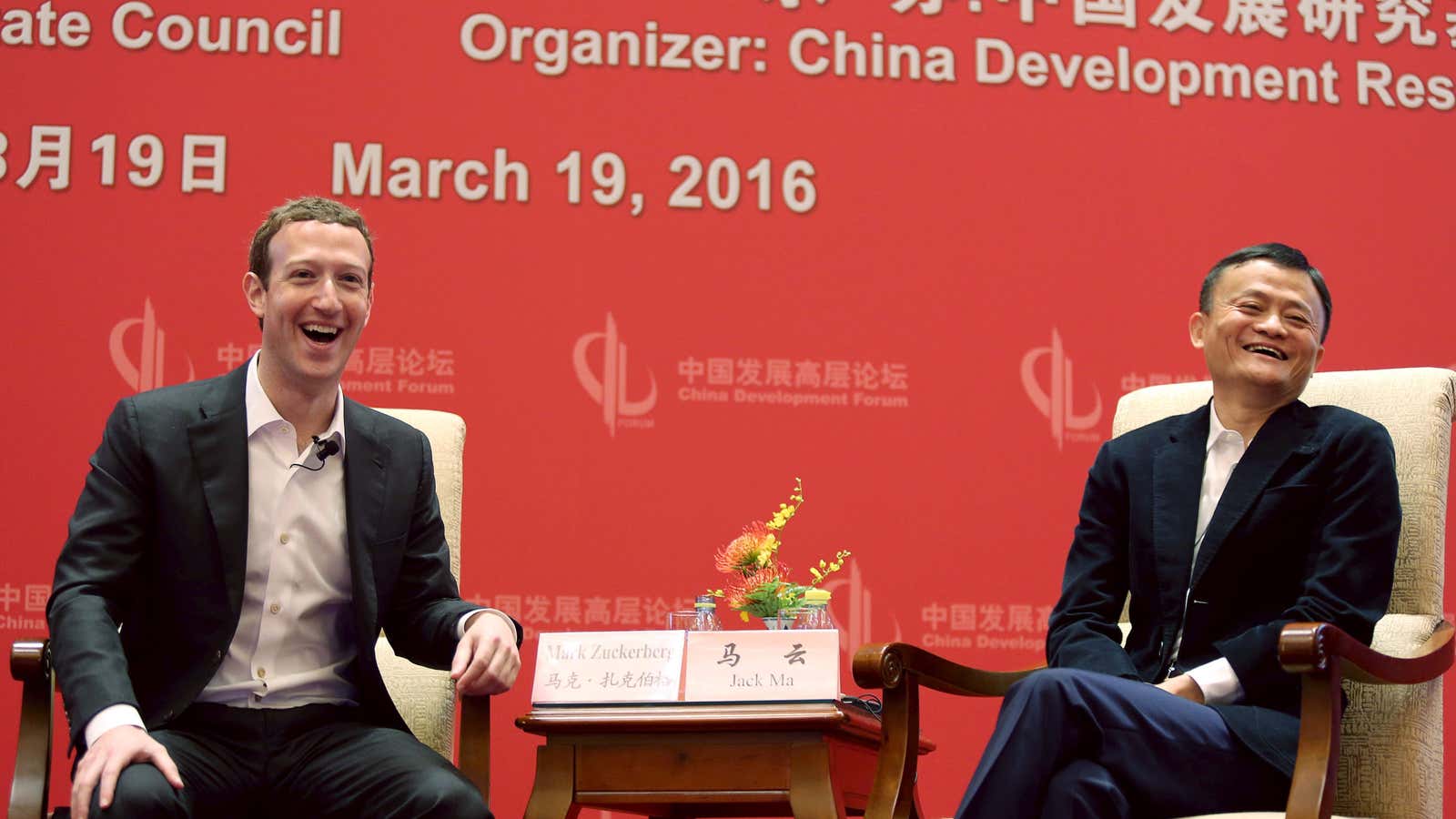Update: Facebook’s approval to open a Chinese subsidiary appears to have been withdrawn, reports the New York Times (paywall).
Facebook has set up a subsidiary in China, Reuters reported July 24. Although its platforms are banned in the country, its 1.3 billion residents represent a vast potential market for the company.
Facebook’s goal is to launch an “innovation hub” that supports startups and developers, according to Reuters. The subsidiary is reportedly registered in Hangzhou, a city in eastern China with a vibrant tech sector, including the headquarters of e-commerce giant Alibaba.
All major US tech platforms are barred from China, and for Facebook, that includes its main app, Instagram, and, as of last year, WhatsApp. Still, Silicon Valley giants are trying to gain a foothold in the massive market, and this appears to be Facebook’s first step.
The company was not immediately available for comment, but it did emphasize to Reuters that it was not changing its approach to China, and that it has set up similar hubs in other countries (these countries do not ban Facebook, however).
In his recent interview with Recode, Facebook CEO Mark Zuckerberg said that the company wants to have its products in China eventually. “I think it’s hard to have a mission of wanting to bring the whole world closer together and leave out the biggest country,” he said.
He also added that the company was a “long time away” from any developments.
“At some point, I think that we need to figure it out, but we need to figure out a solution that is in line with our principles and what we wanna do, and in line with the laws there, or else it’s not gonna happen,” he said. “Right now, there isn’t an intersection.”
Zuckerberg has traveled to China in the past, fueling speculation about his company’s entry into the Chinese market and sparking controversy by jogging through Tiananmen Square in Beijing’s infamous smog.
Facebook’s latest move seems to play into China’s policy push to boost innovation in the domestic market, according to Trivium, a Beijing-based research firm. But, Trivium says in its daily newsletter, Facebook will not be allowed to operate in China as it is currently structured, regardless of any kowtowing to the regime. “The platform is simply too powerful for spurring and spreading social movements—which Chinese [authorities] will do anything to avoid.”
